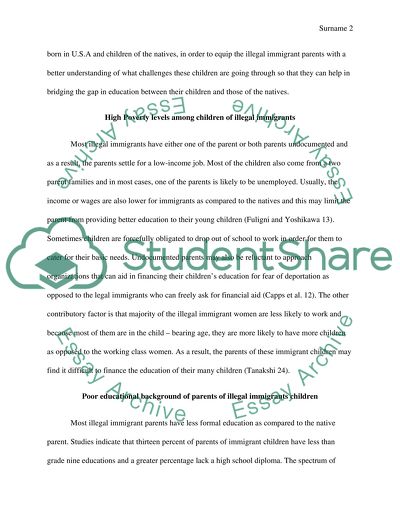Cite this document
(“Children of Illegal Immigrants and Education Research Paper”, n.d.)
Children of Illegal Immigrants and Education Research Paper. Retrieved from https://studentshare.org/english/1436079-children-as-illegal-immigrants
Children of Illegal Immigrants and Education Research Paper. Retrieved from https://studentshare.org/english/1436079-children-as-illegal-immigrants
(Children of Illegal Immigrants and Education Research Paper)
Children of Illegal Immigrants and Education Research Paper. https://studentshare.org/english/1436079-children-as-illegal-immigrants.
Children of Illegal Immigrants and Education Research Paper. https://studentshare.org/english/1436079-children-as-illegal-immigrants.
“Children of Illegal Immigrants and Education Research Paper”, n.d. https://studentshare.org/english/1436079-children-as-illegal-immigrants.


